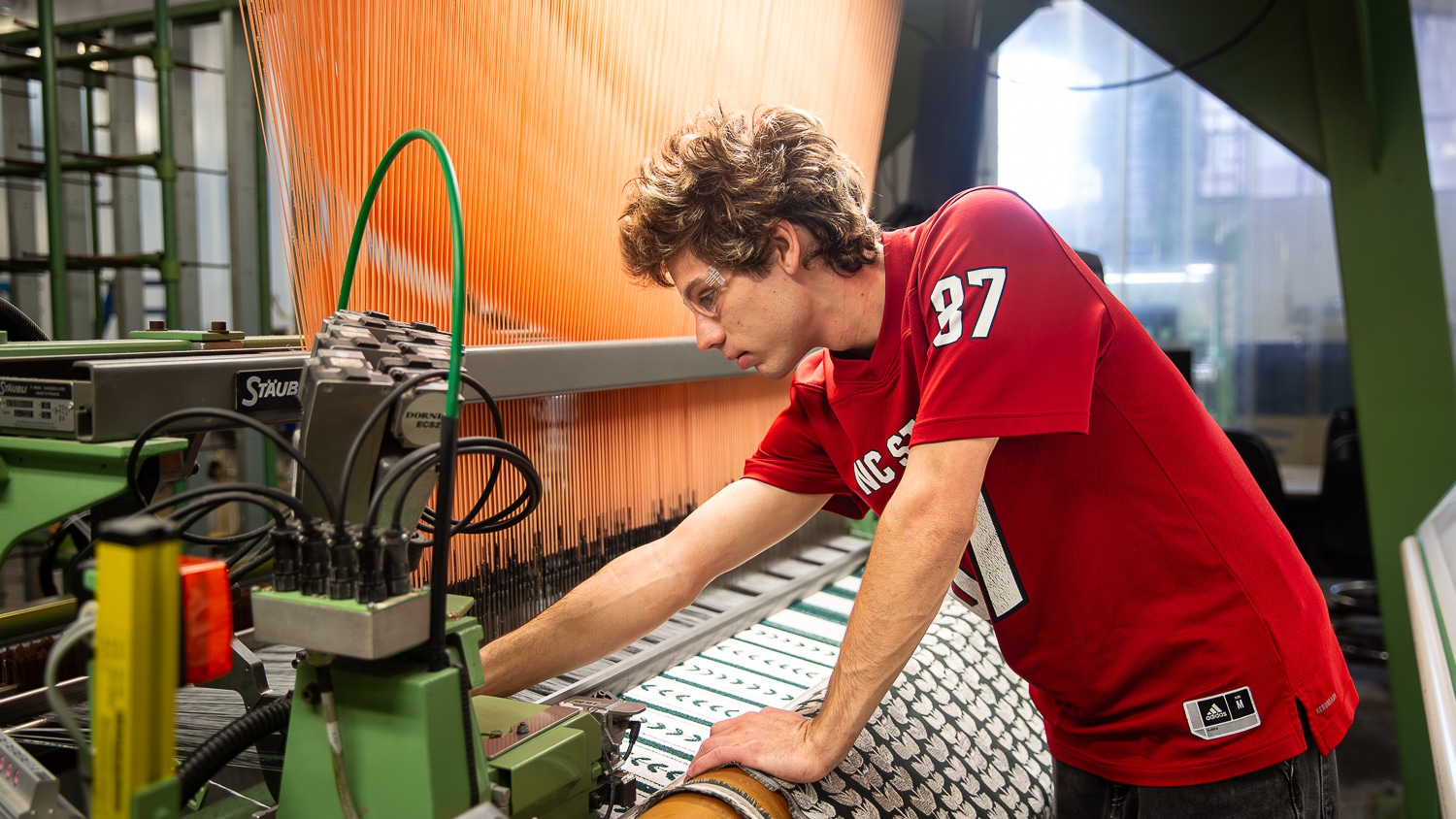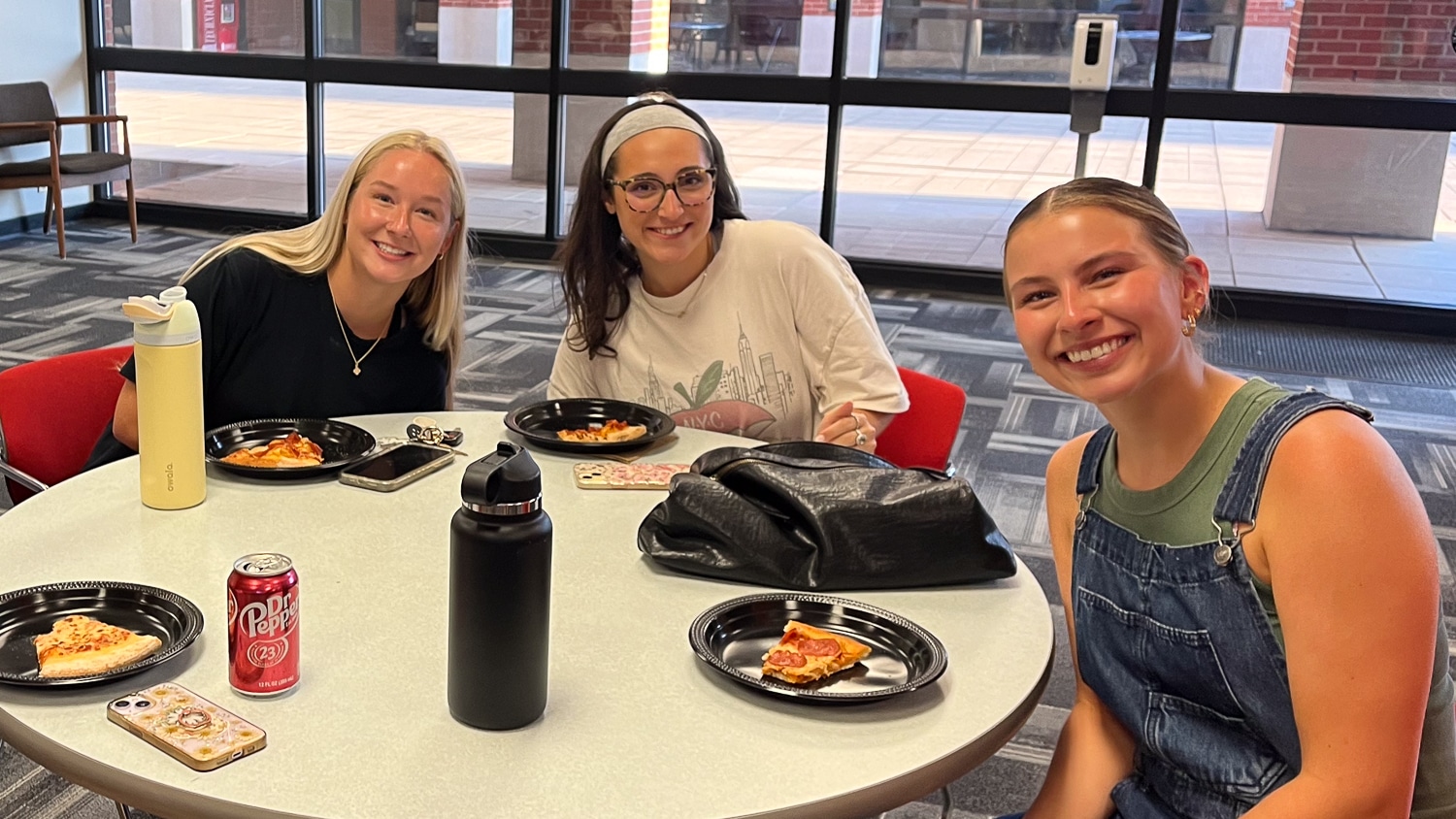Bringing Back The Best

By Jessica Roulhac
Professor of Textile and Apparel, Technology and Management (TATM) Karen Leonas ’80 has been back at NC State for almost a decade now. When the then-named College of Textiles asked her to join the faculty as department head of TATM in 2013, her leadership and innovative research had already left a lasting impact on industry and academia.
Today, in her role as professor, she has an overwhelming feeling of happiness when she thinks of her students. With an impressive reputation and a small, tight-knit network, Leonas is excited for the future of the college.
Midwest moves
Leonas’ first visit to NC State’s campus brought her far from home. At the time, the Indiana native was a second-year student at Purdue University. When she learned that her fascination for fibers could take her elsewhere, NC State soon became one of her options.
She took a big leap — and her first flight — to learn more about NC State’s textile chemistry program and its transfer requirements. Unfortunately, she soon discovered that only 29 of her hours from Purdue would transfer.
Instead of being deterred from pursuing a degree at NC State, Leonas took a break. She boarded a bus to Greensboro, North Carolina, and worked two jobs for a few months. She then headed back to Indiana for the holidays before beginning the textile chemistry program at NC State in January 1978.
When Leonas enrolled in the textile chemistry program, the campus looked very different from today. The program had fewer than five women.
The lack of women on campus was a shock, but Leonas’ love for learning drove her further. She had faculty to support her, too. She recalls how the small size of the college offered a nurturing environment.
“The faculty in textiles were just absolutely wonderful,” Leonas says.“ Dr. Gary Mock was the very first faculty member that I had.”
Leonas committed to semesters with heavy loads filled with physics and chemistry courses. In 1980, she graduated with her degree in textile chemistry. Mission: accomplished.
A high degree of confidence
Upon graduation, Leonas had several job offers, including one from Burlington Industries. Excited by the sounds of looms, Leonas quickly decided to begin her career with the American fabric maker. She worked in the main headquarters within the industrial fabrics division. The focus was quality control.
“I had the aerospace program,” Leonas says. “I was responsible for which rayon fabrics went on the space shuttle. What I did was life or death.”
At the age of 22, Leonas was confident in her NC State degree and would stand up for the truth: quality matters. She wouldn’t hesitate to say, “No, you cannot send it.”
Leonas loved working at Burlington Industries, especially enjoying the partnership with NASA. From bulletproof vests to tires, she explored unique and interesting projects during her first job after graduation.
The time to transition from Burlington Industries came as her husband, whom she met at NC State, accepted a position with the Tennessee Valley Authority. Leonas looked for industry jobs, but she eventually applied for a lab position at the University of Tennessee Knoxville.
When hired, her supervisor asked if she had ever considered graduate school. The question would set her on a path to diversifying her skill set. After passing the GRE with ease, the university admitted Leonas directly into the doctoral program.
She pursued the program for a quarter but decided to begin with a master’s degree instead. Leonas would eventually complete her doctorate, specializing in textile chemistry with a minor in polymer engineering.
High-level teaching
Before returning to NC State in 2013, Leonas served as an assistant professor at the University of Illinois at Urbana-Champaign. She later transitioned to the University of Georgia and Washington State University.
While at the University of Georgia for 17 years, Leonas transitioned from assistant professor to associate professor to full professor. Faculty and students knew and respected Leonas, recognizing her with teaching and advising awards. She was also a graduate coordinator.
“I thoroughly loved it there,” she says.
When Washington State University began searching for a department head, Leonas responded to the call out west. She was the department head for six years.
“I still keep up with students,” Leonas says. “I also got to know people at Nike, Adidas, REI … there’s a lot of industry out there.”
Then, NC State called.
It was a great time to go back to North Carolina. Leonas would be closer to her now adult children and other family. Both she and her husband would be going home.
“I was so fortunate to come to NC State,” Leonas says. “I was so honored to come back. Graduating from NC State in the textiles industry and even from academia in textiles just opened so many unbelievable doors and opportunities for me.”
Leonas is leading the conversation in sustainability challenges that the textile industry faces, and she is focusing on the supply chain. She is on the American Association of Textile Chemists and Colorists Sustainability Committee; serves as co-chair of the Clothing, Footwear and Textile Committee with The Sustainability Consortium; and is on the New York Academy of Sciences Change Fashion Advisory Board, among other organizations. Leonas has also developed a unit for graduate courses in sustainability within the Wilson College.
Leonas is committed to providing her students with opportunities to engage with industry leaders around the country — and around the world. Her strategies include organizing visits, lectures and workshops.
Throughout her career, she has traveled with students to London, Mexico and New York. While at NC State, she has taken students to Seattle, China and Atlanta.
In 2018-19, a tour of the Pacific Northwest allowed her students to get a first-hand look at top producers like Nordstrom, Zulily and Eddie Bauer.
From her research in apparel for agricultural workers to medical textiles and protective apparel, none of her experience has taken a backseat. Whatever she does, she looks for ways to see how her research can have a positive, real-world impact. How can she directly impact industry?
For Leonas, the journey has been a full circle. Now, she’s guiding the next generation of students who may one day lead the conversation on sustainability. From dyeing to finishing to degradation, Leonas’ goal is to use her time in industry and academia to contribute in a significant way.
“Hopefully, my experience adds another dimension,” she says.
- Categories:


